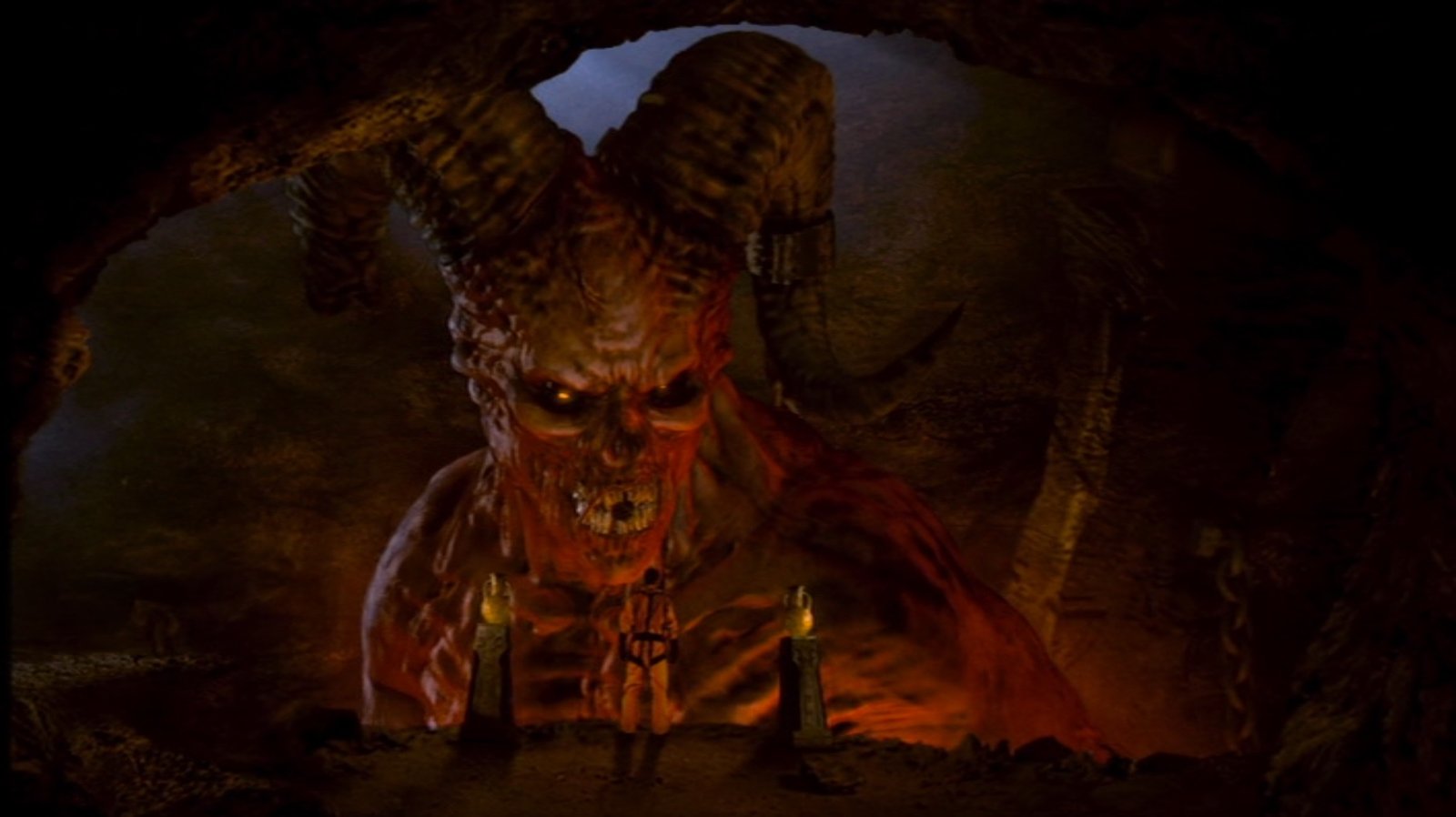I’ve never found it easy to be a Christian and a Doctor Who fan. In the past, the show was pretty irreligious, despite having the odd story set in church (here’s looking at you, The Daemons). There used to be a marked ‘neutrality’ to Who; it seldom ventured towards anything even remotely contentious. But it’s been a bit more vocal since 2005, at times suggesting that I’m a bit stupid for believing in an almighty God, and on other occasions going so far as to saying that my faith should be banned…!
I should say, before I unpack this – I don’t really mind. I don’t need Doctor Who to ‘represent’ me as a Christian, or a man, or anything. Actually, I probably watch Who as an escapism from real life!
But the relationship between Doctor Who and Christianity does interest me, particularly in the way it has evolved over the years. And as I watch Jodie Whittaker’s Doctor dash around the TARDIS console with a ‘fam’ that represents an impressively diverse range of homo sapiens, I can’t help but wonder if a follower of Jesus would fit into that setup. And would the producers even consider it?
I ask this because the show’s relationship with Christianity has been a bumpy one since 2005. Is ‘bumpy’ too strong a word? Maybe. But Doctor Who certainly has had no compunction in poking gentle fun at the Jesus fans under the guidance of Russell T Davies and Steven Moffat (two writers who I greatly admire, by the way).
Religion should be banned?
Immediately I think of the crucifix-shaped Platform One in the opening frames of The End of the World. The host greets space shuttles as they dock, reminding them that “Platform One forbids the use of weapons, teleportation, and religion.” Russell T expanded on this point in an interview for Doctor Who Magazine, saying that “if they haven’t reached [the point of banning religion] by the year five billion then I give up!” Now, why Platform One was shaped like a crucifix is beyond my powers of deduction, so I will need to refer this one to a higher intelligence.

Which brings me to Richard Dawkins. For those of you who don’t know, Richard Dawkins is an evolutionary biologist and outspoken atheist, perhaps best known for his book The God Delusion in 2006. More excitingly, he was married to Lalla Ward who played the Fourth Doctor’s companion Romana, so do line up for a photo (preferably in an 18 ft. long Fourth Doctor scarf. Marvellous. Absolutely.)
The voice of reason?
But Dawkins also made a guest appearance in Doctor Who, playing himself as an interviewee on Newsnight to provide the voice of reason in the midst of mass hysteria. The episode was The Stolen Earth and everyone was going nuts because a new system of planets had appeared in the night sky. “But it’s an empirical fact,” Dawkins insists. “The planets didn’t come to us, we came to them. Just look at the stars – we’re in an entirely new region of space. We’ve travelled.”
Later, he’s referenced in the Series 5 episode, The Big Bang, apparently as one of the few people who still believes in the existence of stars. (It’ll make sense when you watch the episode.) Anyway, the role Dawkins plays in these two episodes is clear: he’s the man of observation, of reason. He’s able to establish the truth of the matter in the midst of everyone’s misguided beliefs – just by using his eyes and his intelligence.
Indeed, this a theme of many a Russell T episode – the idea that people would much rather ‘just believe in something’ than actually use their eyes or their brains. We see this in Army of Ghosts when Jackie Tyler is prepared to believe that a grey, ghostly shape is her dead father just because she “wants it” badly enough. Until, of course, the Doctor comes along and corrects her. Using the magic of sight.
And I could be wrong, but this seems to be the point that RTD is constantly trying to hammer home: ‘don’t believe in anything until you’ve seen it.’ He even toys with the idea of ‘debunking’ Jesus’ resurrection altogether in Planet of the Dead when he tells the Lady Christina that he remembers “the original” Easter. “Between you and me, what really happened was-” And then he’s suddenly cut off.
(At least Mark Gatiss’ The Unquiet Dead hints that there is something beyond the grave, and that even the Doctor doesn’t have all the answers.)
It’s better to believe in science?

As such, I think it’s fair to say that you’re going to have a much smoother ride through the Whoniverse if you’re an atheist. Or, for that matter, a scientist. Which makes sense, as this is science fiction after all, not Jesus fiction (we have The God Delusion for that, ahaha…!).
I can’t lay all this on Russell T Davies’ door though; Terrance Dicks gave the subject a wink in Horror of Fang Rock when the Doctor’s companion Leela declares that “it is better to believe in science”. I guess this was less clear-cut though, as (strictly speaking) she was comparing science to magic, not Christianity. And then we have Steven Moffat, who makes playful (almost Douglas Adams-esque) jokes about religion in many of his stories, such as when the two Sontarans are blown up in The Time of the Doctor. “The relevant afterlives have been informed,” they’re told. Which is nonsense. Albeit amusing nonsense.
But I do need to be fair to the show; there have been times when it has taken a much more sympathetic stance on religion. The Thirteenth Doctor’s companion Yaz is a practicing Muslim, and nobody bats an eyelid at this. Then there is The Satan Pit from Series 2, and even though it comes down on the idea that the Christian concept of the Devil is incorrect, the Doctor is forced to concede that there are many things about the Universe that he doesn’t understand. He’s faced with a creature who existed “before the Universe” – a concept that, by his own admission, doesn’t fit “his rule,” and one that it is too hard for him to wrap his head around. The Doctor is forced to accept that he has reached the limits of his powers as a scientist. He cannot observe something that came “before time and light and space and matter.” This problem is left open-ended and unresolved, forcing the viewer to accept that there are some things they will never know.
Space for all?

Despite all this, I can’t help but notice that whilst we’ve had some good airtime for atheists and agnostics since Who returned in 2005, there haven’t been too many Christian companions wandering around the TARDIS console, quoting joyously from the book of Psalms. Now again, I must stress – this doesn’t hugely bother me. Not really. I’m not accusing Who of being ‘Jesuphobic,’ or even insisting that it represents me in the show that claims to have ‘space for all.’ But nonetheless I wonder if there is some reluctance to venture into Christian territory? And if so, I’d be curious to know why.
Or heck, I can just wait until I’m the showrunner and then have lots and lots of stories set in 1st Century Jerusalem with Paul of Tarsus as the companion. You have been warned, Twitter.
What do you think? Is there an opportunity for Doctor Who to broaden its reach and introduce some new faiths into the TARDIS team? Or do you think Doctor Who should avoid any kind of representation of religion altogether, and focus more heavily on its stories? Let me know in the comments below.



